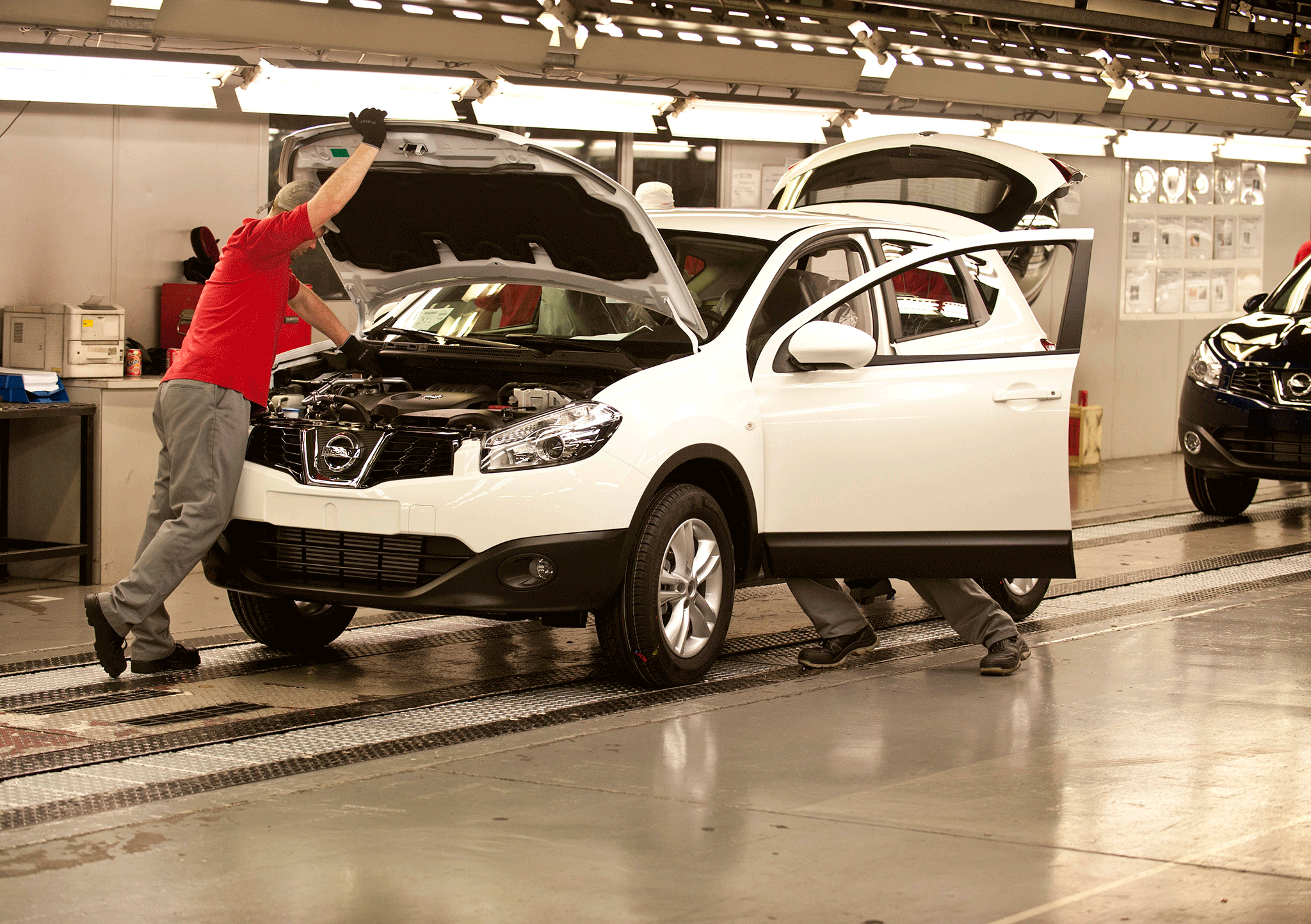UK car manufacturing slumps 14% in June and hard Brexit could mean a further hit, industry body warns
British car industry’s ambition to reach an all-time high production figure of 2 million by 2020 is now in jeopardy from a variety of factors, including the impact of Brexit

In a stark warning about the consequences of Brexit to British industry, the Society of Motor manufacturers and Traders say that a hard Brexit would mean a 10 per cent to vehicle production in the UK, which is already weakening because of the slowdown in the domestic economy. An Independent analysis commissioned by the SMMT also suggest that the British car industry’s ambition to reach an all-time high production figure of 2 million by 2020 is now in jeopardy from a variety of factors, including the impact of Brexit.
The UK car business last saw such production volumes in 1972, and exceeding that benchmark would have been a symbol of historic success. Investment in the car industry has also slowed markedly, a sign that companies are postponing decisions until the post-Brexit picture becomes clearer.
Fresh SIMMT figures indicate that car manufacturing was down by 13.7 per cent in June compared to a year before, and although monthly figures are often volatile, the first half of 2017 also saw a shortfall on the excellent showing in 2016. For the first six months of 2017 866,656 cars left UK factories, a decrease of 2.9 per cent on the corresponding previous period in 2016.
For the moment, the principal weakness facing the industry is in production for “home” sales, down 9.6 per cent as uncertainty over Brexit, rising inflation and stagnant wage growth has eroded consumer confidence. Changes in vehicle excise duty rates also cooled the market. Exports, aided by a post-Brexit devaluation of sterling are broadly stable – down 0.9 per cent. Yet sales of British made cars to the US leapt by 37.6 per cent, largely due to Honda’s decision to make its UK home the hub for global sales of its new hatchback. The EU still takes about a half of UK production.
Mike Hawes, Chief Executive of the SMMT commented: “World-class engineering, productivity, strong government collaboration and massive investment in the past few years have helped UK Automotive become a global success story. At the heart of this has been the free and frictionless trade we've enjoyed with the EU – by far our biggest customer and supplier. But Brexit uncertainty is not helping investment and growth is stalling.
The Government has been in “listening” mode but now it must put on the table the concrete plans that will assure the future competitiveness of the sector. Investors need certainty so, at the very least, the UK must seek an interim deal which maintains single market and customs union membership until we have in place the complex new agreement sought with the EU.”
Privately industry figures more widely have indicated their irritation about the lack of engagement with ministers over the clear dangers the industry has identified. Car makers in Britain, almost all with headquarters abroad, including in the EU, regard leaving the EU single market and the customs union as little short of disastrous for the long-term prospects of the industry. Key factors such as the security of complex cross-border supply chains and the easy movement of key managerial and engineering personal are critically threatened by any limits to them under new arrangements. Any free trade deal with the EU has to conclude these kinds of provisions if the industry is to have much of a future.
At the moment BMW have operations building the Mini and Rolls-Royce at Oxford and Goodwood in Sussex, with an engine plant in Birmingham. Honda is based in Swindon, Toyota in North Wales and Derbyshire, Nissan at Sunderland and Peugeot is taking over the GM Europe Vauxhall assets in Luton and Ellesmere Port, Merseyside. VW also makes Bentley cars in Crewe, and Tata is the owner of Jaguar Land Rover, based in Birmingham, Merseyside and Wolverhampton. The SMMT say they would “welcome a formal dialogue” with minister.
Business news: In pictures
Show all 13The SMMT also indicated that it had been left “out of the loop” in the detail of the Governments announcements to end sales of conventional internal combustion engined cars by 2040. They add that the UK needs a manufacturing facility to produce the electric propulsion systems of the future, including batteries and electric motors, and notes that BMW will be bringing in those high-value components for the electric Mini from German plants for the new car’s 2019 launch.
The SMMT also sounded a note of caution on the current debate on diesel, stressing that the very latest “Euro VI” standard engines are built to the most stringent of standards.
Subscribe to Independent Premium to bookmark this article
Want to bookmark your favourite articles and stories to read or reference later? Start your Independent Premium subscription today.

Join our commenting forum
Join thought-provoking conversations, follow other Independent readers and see their replies